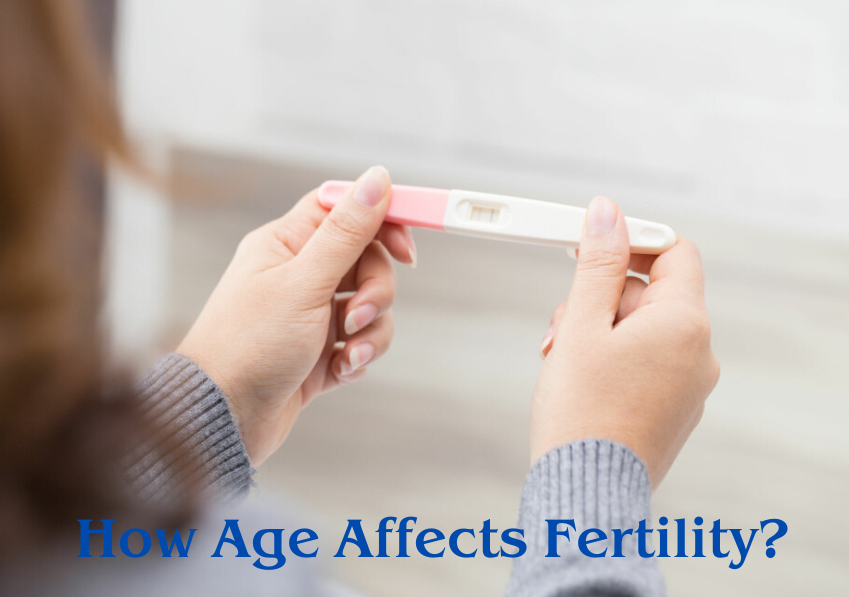While being in your thirties or forties, the possibility of experiencing a healthy pregnancy and welcoming a healthy baby is still quite likely. Nevertheless, it’s important to acknowledge that the journey to conception may take longer for some individuals, potentially necessitating medical assistance, often referred to as assisted conception. It’s essential to be aware that as women advance in age, the challenges associated with achieving pregnancy become more pronounced, and the likelihood of experiencing a miscarriage also rises. Men’s fertility also decreases with age, though to a lesser extent. Experience exceptional care and expertise at Diva Women’s Hospital, where our dedicated team of experienced obstetricians and gynecologists in Ahmedabad is ready to support your health journey. Take the first step towards your well-being, schedule your appointment today.
Why does age affect one’s fertility?
Fertility gradually diminishes with age, notably after reaching the age of 35, primarily due to a decline in both the quantity and quality of eggs. Every month, from the onset of puberty until menopause, an egg is released from your ovaries, with the potential for pregnancy when it combines with sperm in the womb. While it might appear that your body generates a new egg each month, the reality is different. Women are born with their entire lifetime supply of eggs, which are stored within the ovaries. As the years go by, these eggs also age, influencing fertility as a result. Experience excellence in women’s healthcare with Diva Women’s Hospital, offering the best IVF treatments in Ahmedabad. Take the first step toward your well-being today.
How long it takes to get pregnant depending on age
The time it takes to get pregnant can vary depending on your age. For women in their twenties, conception often happens relatively quickly, typically within a few months of trying. However, as women get older, it can take longer. In your thirties, it might take several months to a year, and after the age of 35, fertility starts to decline more noticeably. Women in their forties may find it even more challenging to conceive, and it could take a year or more. Keep in mind that individual factors can also play a role, so if you’re concerned about your fertility or the time it’s taking to get pregnant, consulting a healthcare professional can provide valuable insights and guidance. If you’re aware of any other health issues related to fertility, such as endometriosis, polycystic ovary syndrome (PCOS), or thyroid conditions, it’s advisable to schedule a consultation with your doctor sooner rather than later. It’s crucial to bear in mind that fertility is influenced by factors beyond age alone. Habits like smoking, alcohol and drug use, obesity, and the presence of sexually transmitted diseases can also exert a significant impact on your chances of achieving pregnancy. Seeking expert guidance? Look no further than Dr. Pooja Patel, a seasoned professional with extensive expertise in the field and a wealth of knowledge.
Age and Infertility
Age is a critical factor in the world of in vitro fertilization (IVF), and understanding its impact is vital for couples seeking assisted reproductive treatments. For women, fertility significantly declines with age. In their twenties and early thirties, chances of IVF success are typically higher, with quicker conception rates and lower risks of complications. However, as women reach their mid-thirties and beyond, fertility declines more rapidly. This means that older women may require more IVF cycles to achieve pregnancy, and the risk of miscarriage also increases. For men, while age-related fertility decline is not as pronounced, advanced paternal age can affect the chances of conception and may be linked to certain health issues in offspring. Hence, when considering IVF, your age is a pivotal factor that can influence not only the likelihood of success but also the treatment approach recommended by fertility specialists.
What if my male partner is older?
While men’s fertility doesn’t decline as sharply as women’s with age, it’s still a factor to consider. If your partner is over 40, it may pose challenges in achieving pregnancy, particularly if you’re also in your forties. Factors, like reduced sexual desire, lower-quality sperm, and decreased sex hormone levels, can impact the fertility of older men. Discover the path to parenthood with confidence at Diva Women’s Hospital, your destination for the Best IVF Treatment Services in Ahmedabad. Take the first step towards your dreams of parenthood and schedule a consultation today.
What can I do to make sure I have a healthy late pregnancy?
Ensuring a healthy late pregnancy involves taking several proactive steps. Firstly, maintaining regular prenatal check-ups with your healthcare provider is crucial. This allows for continuous monitoring of your and your baby’s health. A well-balanced diet rich in essential nutrients, such as folic acid and iron, is essential for your baby’s development. Staying physically active, within the guidelines provided by your doctor, helps manage weight gain and promotes overall well-being. Managing stress through relaxation techniques, adequate sleep, and seeking support from loved ones is beneficial. Finally, avoiding tobacco, alcohol, and any recreational drugs is imperative for a healthy late pregnancy. By prioritizing these factors and following your healthcare provider’s recommendations, you can enhance the chances of a safe and healthy pregnancy, even in your later years.
Unlock a world of comprehensive women’s healthcare at Diva Women’s Hospital. Our expert services encompass pre-pregnancy counseling, pregnancy care, infertility counseling and management, advanced laparoscopic surgery, IVF treatments, gynaecology, PCOD management, fibroid surgeries, and total laparoscopic hysterectomy (TLH), along with abdominal/vaginal hysterectomy. Your journey to optimal health begins here: schedule your appointment today at Diva.

